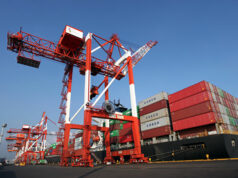Satisfaction with Duterte gov’t dips, still ‘very good’
SATISFACTION WITH President Rodrigo R. Duterte’s administration remains “very good” more than a year into his presidency, although there has been a decline in this net satisfaction every quarter since March this year, according to the latest Social Weather Stations (SWS) Survey conducted Sept. 23-27.
A previously released survey by the SWS also conducted in that period shows Mr. Duterte’s net satisfaction at a good +48 in September, from his “very good” range of +66 last June, +63 last March, and an average +64 last year.
Satisfaction with the general performance of the national administration as of September this year is at +58 (71% satisfied minus 13% dissatisfied), from +64 last June and +66 last March. This was the administration’s net satisfaction in September last year before it dipped to +61 by December, 2016.
(The SWS terminology for net satisfaction ratings is as follows: +70 and above, “excellent”; +50 to +69, “very good”; +30 to +49, “good”; +10 to +29, “moderate”, +9 to –9, “neutral”; –10 to –29, “poor”; –30 to –49, “bad”; –50 to –69, “very bad”; –70 and below, “execrable.”)
By area, satisfaction with the administration had double-digit declines to +51 (from +67 last June) in the National Capital Region and +52 (from +63 last June) in Balance Luzon.
There was a one-point increase to +57 in the Visayas and a two-point increase to +74 in Mindanao, Mr. Duterte’s home region, where satisfaction has remained in the excellent range since September last year.
“The 6-point decline in the Duterte Administration’s general net satisfaction rating was due to declines of 16 points in Metro Manila and 11 points in Balance Luzon, combined with increases of 2 points in Mindanao and 1 point in the Visayas,” SWS said.
By class, the administration’s net satisfaction rose 5 points to +60 among the ABC, but plunged 22 points to +46 among Class E. Satisfaction declined 4 points to +60 among Class D.
“Double-digit declines in the National Administration’s net satisfaction rating occurred among men, among 55-year olds and above, and among non-elementary school graduates and college graduates,” SWS also pointed out.
Yet, on the other hand, the administration retained its “very good” rating in “helping the poor” at +67, slightly changed from +65 in June.
It also rated well in “defending the country’s territorial rights” at +52 and “providing jobs” at +50, whereas it rated “good” +30 in “fighting crimes” and was in the ‘moderate” range in terms of “ensuring that no family will ever be hungry,” “recovering the ‘hidden wealth’ stolen by Marcos and his cronies,” “resolving the traffic problem,” “solving the problem of extrajudicial killings or EJK,” and “fighting inflation.”
The Third Quarter 2017 SWS Survey asked 1,500 adults via face-to-face interviews, with 600 respondents in Balance Luzon, and 300 each in Metro Manila, Visayas and Mindanao, and with a sampling margin error of ±2.5% for national percentages, ±4% for Balance Luzon, and ±6% each for Metro Manila, Visayas, and Mindanao.
Sought for comment, Presidential Spokesperson Ernesto C. Abella said: “The current government’s efforts to bring comfortable life for all have started to bear fruits with Filipinos rating the Administration ‘very good’ in the areas of helping the poor, protecting the environment, defending the country’s territorial rights, and providing jobs.”
Sought for comment, Ramon C. Casiple, executive director of Institute for Political and Electoral Reform, said in a phone interview that the decline in the SWS satisfaction rating of the Duterte administration is “normal.”
“It is normal for the [satisfaction ratings] of presidents and administrations to decline over time. But if it is abnormal that it goes beyond -1, then there must be something wrong.”
Mr. Casiple also believes that extrajudicial killing (EJK) incidents particularly the killing of Kian delos Santos in Caloocan City, has little effect to the survey.
“Most communities that have not experienced the “killings” are in favor of the administration — and that is [based] on the data from the ground,” Mr. Casiple said.
Also sought for comment, University of Santo Tomas political science professor Edmund S. Tayao said, “The slight decrease may have something to do with the negative reports, the killing of Kian and another minor supposedly related to the war against drugs. But more than that, also the continued increase in the prices of oil and the devaluation of peso, which resulted (in) inflation. While this is not directly political, this impacts the day-to-day lives of the people — the reason why they would either respond negatively or positively to the administration.”
“(C)onsidering that this survey was done in the same period as Pulse Asia, it is interesting that the results of SWS are significantly different,” Mr. Tayao also noted, referring to Pulse Asia’s latest survey released this month and also conducted in September showing “big majority approval and trust ratings” for Mr. Duterte.
He added satisfaction can still change (“pwedeng magbago”), “depending on what happens. For example, the government is successful in getting rid of the Maute group, so that may be seen positively by the public because, obviously, well it can improve.” — Rosemarie A. Zamora with Arjay L. Balinbin



